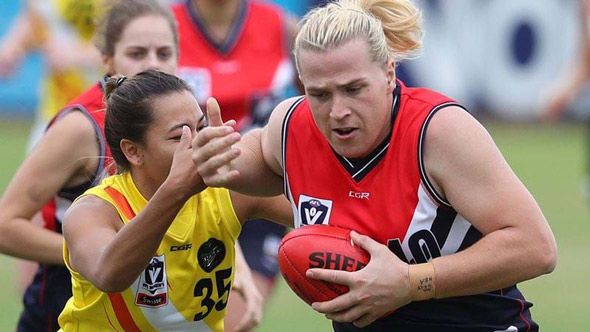
World Rugby is set to ban transgender women from playing women’s rugby due to serious safety concerns that have emerged following peer-reviewed scientific research that found anyone who goes through male puberty retains a significant physical advantage, even if they reduce their testosterone levels to levels found in biological females.
World Rugby is set to become the first international sports federation to ban transgender women from competing with biological females.
According to a Guardian report, a 38-page draft document produced by World Rugby’s transgender working group acknowledges there is “at least a 20-30% greater risk” of injury when a female player is tackled by someone who has gone through male puberty.

BYPASS THE CENSORS
Sign up to get unfiltered news delivered straight to your inbox.
You can unsubscribe any time. By subscribing you agree to our Terms of Use
The document also says the latest science proves that trans women retain “significant” physical advantages over biological women even after they take medication to lower their testosterone.
According to World Rugby, welfare concerns for female players should be prioritized over political correctness.
“Current policies regulating the inclusion of transgender women in sport are based on the premise that reducing testosterone to levels found in biological females is sufficient to remove many of the biologically-based performance advantages,” the draft report says. “However, peer-reviewed evidence suggests this is not the case.
“Ciswomen players (who do not undergo androgenisation during development) who are participating with and against transwomen (who do undergo androgenisation during development) are at a significantly increased risk of injury because of the contact nature of rugby.”
It adds: “While there is overlap in variables such as mass, strength, speed and the resultant kinetic and kinematic forces we have modelled to explore the risk factors, the situation where a typical player with male characteristics tackles a typical player with female characteristics creates a minimum of 20% to 30% greater risk for those female players. In the event of smaller female players being exposed to that risk, or of larger male players acting as opponents, the risk increases significantly, and may reach levels twice as large, at the extremes.”
As World Rugby’s working group notes, players who are assigned male at birth and whose puberty and development is influenced by androgens/testosterone “are stronger by 25%-50%, are 30% more powerful, 40% heavier, and about 15% faster than players who are assigned female at birth (who do not experience an androgen-influenced development).”
Contradicting the message pushed by the transgender lobby, those physical advantages are not reduced when a trans women takes testosterone-suppressing medication, as was previous thought – “with only small reductions in strength and no loss in bone mass or muscle volume or size after testosterone suppression”.
Crucially the draft proposals, which have been seen by the Guardian, accept that anyone who has gone through male puberty retains a significant physical advantage after their transition. It also recognizes that the advantage is so great – and the potential consequences for the safety of participants in tackles, scrums and mauls concerning enough – it should mean that welfare concerns should be prioritised. – The Guardian
World Rugby’s working group notes that transgender women players (whose puberty and development is influenced by androgens/testosterone) “are stronger by 25%-50%, are 30% more powerful, 40% heavier, and about 15% faster than players who are assigned female at birth (who do not experience an androgen-influenced development).”
World Rugby currently follows the same policy as the International Olympic Committee (IOC) but is now expected to come up with its own policy following the review.
Under the IOC’s current policy, transgender women can compete in sport if their testosterone level in serum is kept below 10 nanomoles per litre for at least 12 months.


